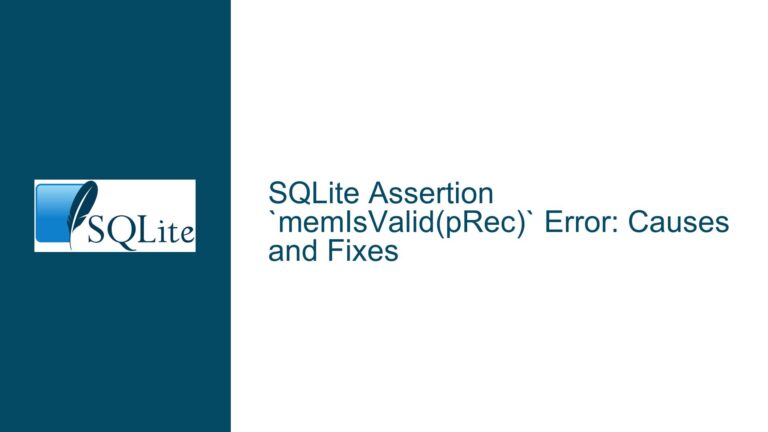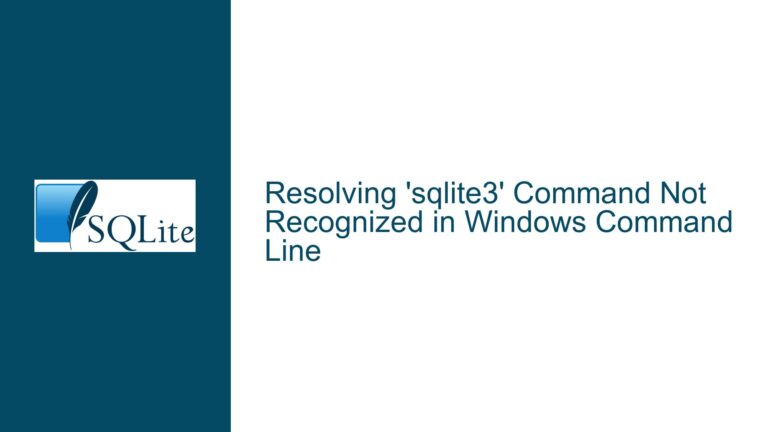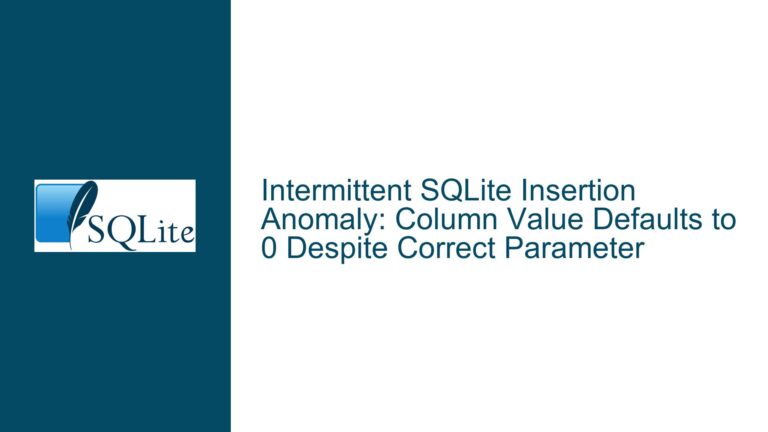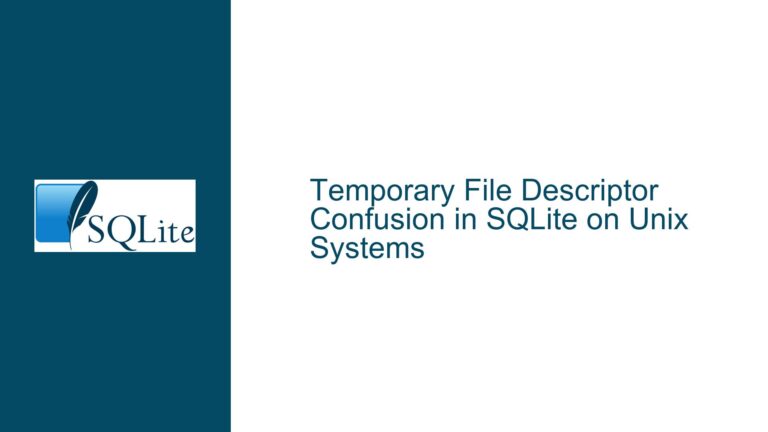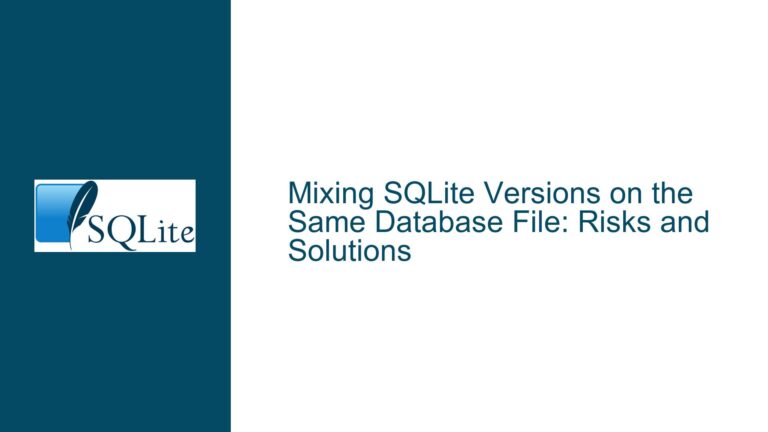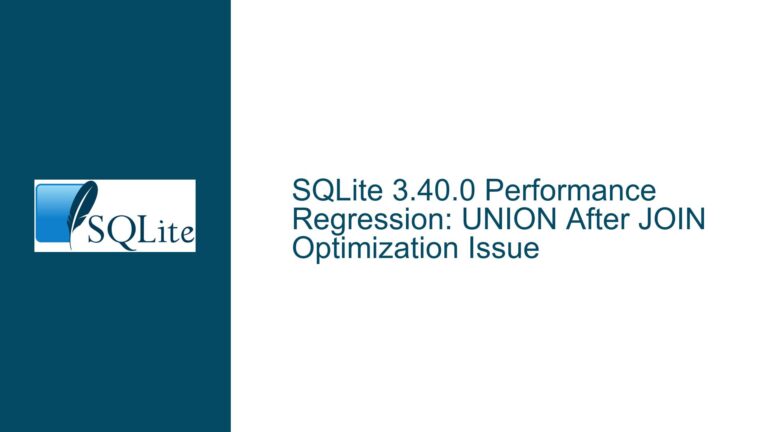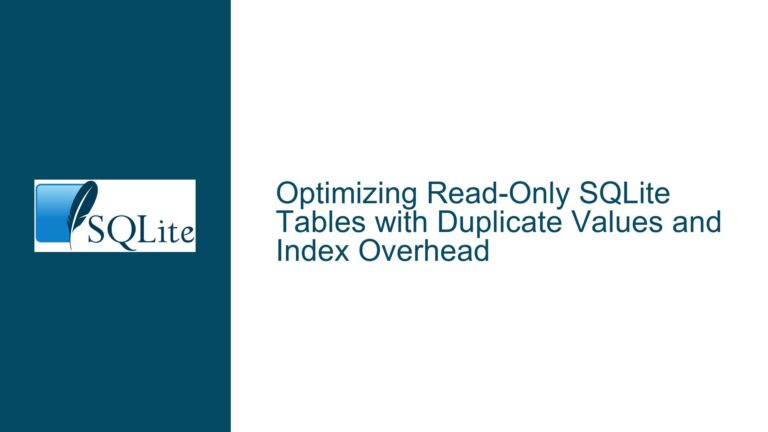SQLite Assertion `memIsValid(pRec)` Error: Causes and Fixes
Issue Overview: Understanding the memIsValid(pRec) Assertion Failure The memIsValid(pRec) assertion failure in SQLite is a critical error that occurs during the execution of a SQL query, specifically within the sqlite3VdbeExec function. This function is part of SQLite’s virtual machine (VDBE) that executes bytecode generated by the SQLite code generator. The assertion memIsValid(pRec) ensures that the…
